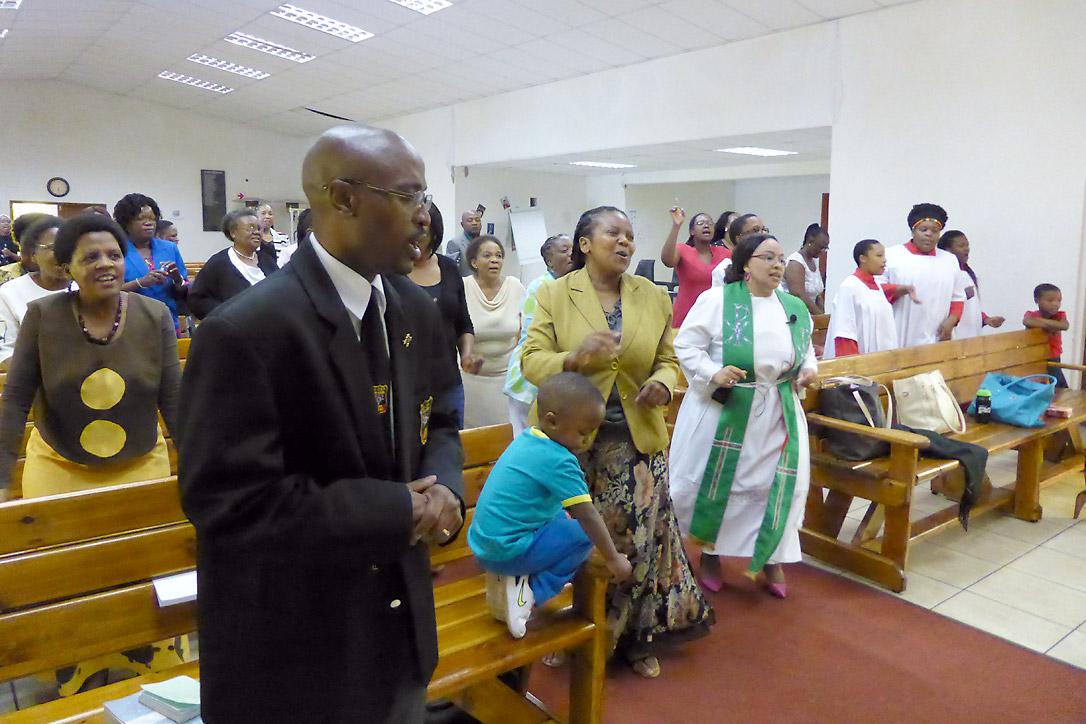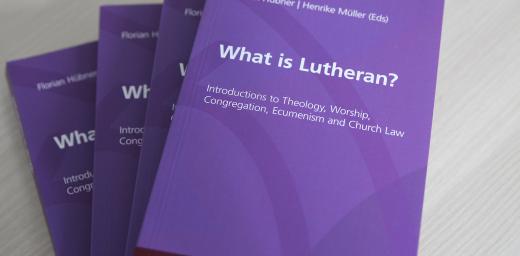African Lutheran Theologians’ Network Focuses on Churches as Peacemakers

Participants of the African Theologianâs Network meeting in Johannesburg. Photo: LWF
The bible and peace building
(LWI) – A central theme of the African Lutheran Theologians’ Network meeting in Johannesburg from 8-15 November 2014 was the practical role churches should play as peacemakers in conflict situations in their countries and within the church.
“The Bible verse about turning the other cheek prompted a long discussion on how to relate this text to conflict in churches,” said Rev. Dr Kenneth Mtata, Study Secretary for Lutheran Theology and Practice at the Lutheran World Federation (LWF) Department for Theology and Public Witness.
“Many participants gave examples from their own contexts. This is very interesting because in churches conflict often arises due to the failure to uphold the laws which govern that church.”
The network brings together theologians from across Africa to discuss interpretations of the Bible from a Lutheran perspective and address contextual questions. The meeting focused on gender justice and human development, with a special emphasis on mentoring young theologians. It used the Gospel of Matthew, Chapter 5, which calls on Christians to be peacemakers, as its main text.
“In our current situation in Cameroon, we want to preserve peace between Christians and Muslims. This peace may be weakened by attacks by Boko Haram Islamists from Nigeria against churches, which can create mistrust between religious communities,” said Rev. Dr Samuel Dawai, Church of the Lutheran Brethren of Cameron and director of the Institute of Theology in Kaele, Cameroon.
“For example, in a confirmation class, I will say that Christians should behave in a way that avoids provocation, mistrust and confusion between Christians and Muslims. Inside the church to resolve conflicts, we teach a behavior that promotes justice and peace to avoid frustrating situations that cause divisions within African churches.”
Dawai emphasized that “peacemakers enjoy a wonderful promise of being called the sons and daughters of God and will enter with Jesus as brothers and sisters into the family of God.”
“Churches in Africa have a responsibility to their countries and continent to help solve social, economic and political problems,” he added. “The most urgent issues that African theologians have to address are poverty, peace, the coexistence of religions and good governance.”





